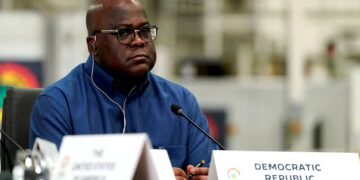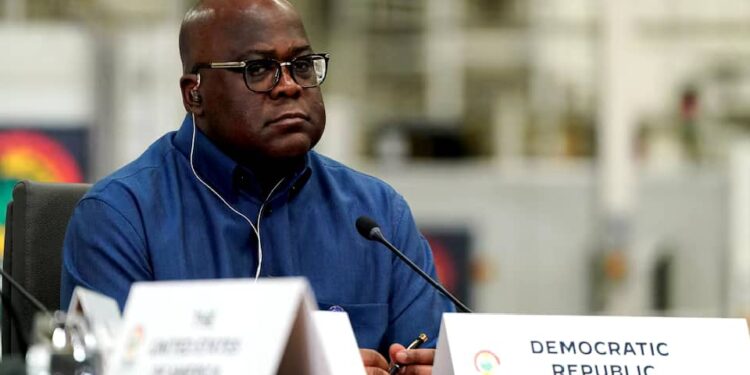By Enyichukwu Enemanna
The government of the Democratic Republic of the Congo (DRC) and the Rwanda-backed rebel group, M23, have agreed to pause fighting and work towards a broader peace deal, according to their joint statement.
“Both parties reaffirm their commitment to an immediate cessation of hostilities, a categorical rejection of any hate speech, intimidation, and call on local communities to uphold these commitments,” said the joint statement.
The peace pact was announced late on Wednesday following a round of negotiations in Qatar’s capital, Doha, and has raised hopes that the latest wave of violence, which followed M23’s assault and capture of the DRC’s two largest cities earlier in the year, may begin to subside.
The “cessation of hostilities” would apply “throughout the duration of the talks and until their conclusion,” the statement added.
The breakthrough was reached after several negotiation attempts between both sides had failed.
However, reports of continued clashes, especially in South Kivu province, highlight the “fragility” of any truce agreement.
Qatar, which mediated the peace deal, had last month brokered a rare face-to-face meeting between Congolese President Felix Tshisekedi and his Rwandan counterpart, Paul Kagame.
The meeting between the two leaders provided an opportunity for direct talks between the DRC and M23, a group with which President Tshisekedi had earlier vowed not to negotiate.
The conflict between the DRC and the Tutsi-led M23 is rooted in the spillover into Congo of Rwanda’s 1994 genocide and the struggle for control of Congo’s vast mineral resources.
Since 2021, the two sides have agreed to at least six truces, all of which later collapsed. The latest bout of violence, which began in January, has killed thousands and raised fears of a wider regional war.
The DRC, the United Nations, and Western governments have accused Rwanda of supporting M23 with troops and arms, but Kigali has long denied sending military assistance.
Despite the truce statement, some DRC government and M23 sources, cited by the Reuters news agency, expressed frustration with the pace of negotiations.
The sources said disagreements over potential confidence-building measures, such as the release of DRC-held prisoners accused of links to Rwanda and M23, had almost derailed the outcome.


































